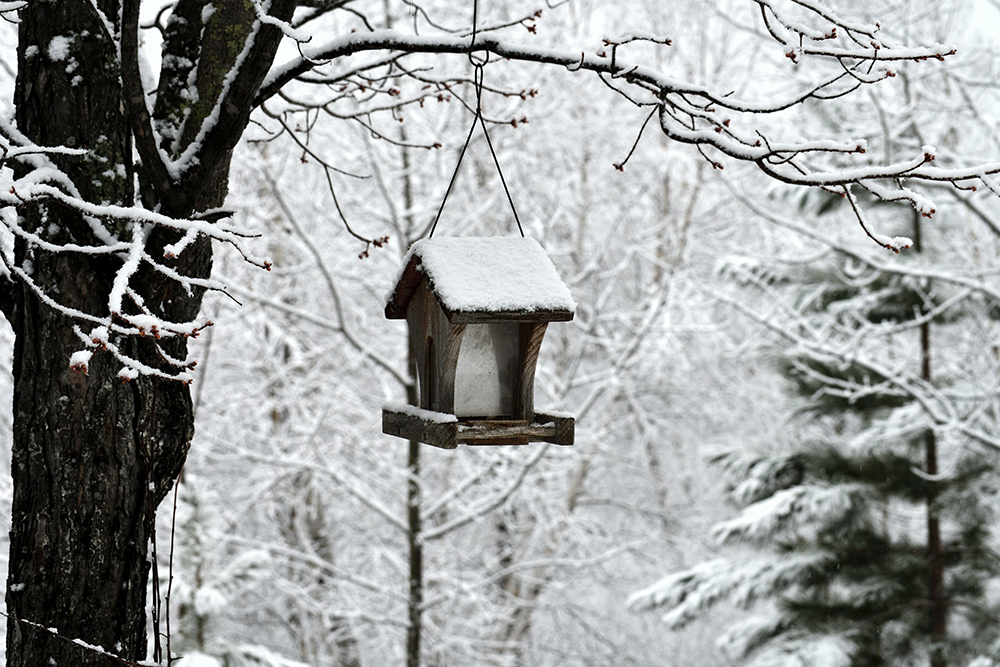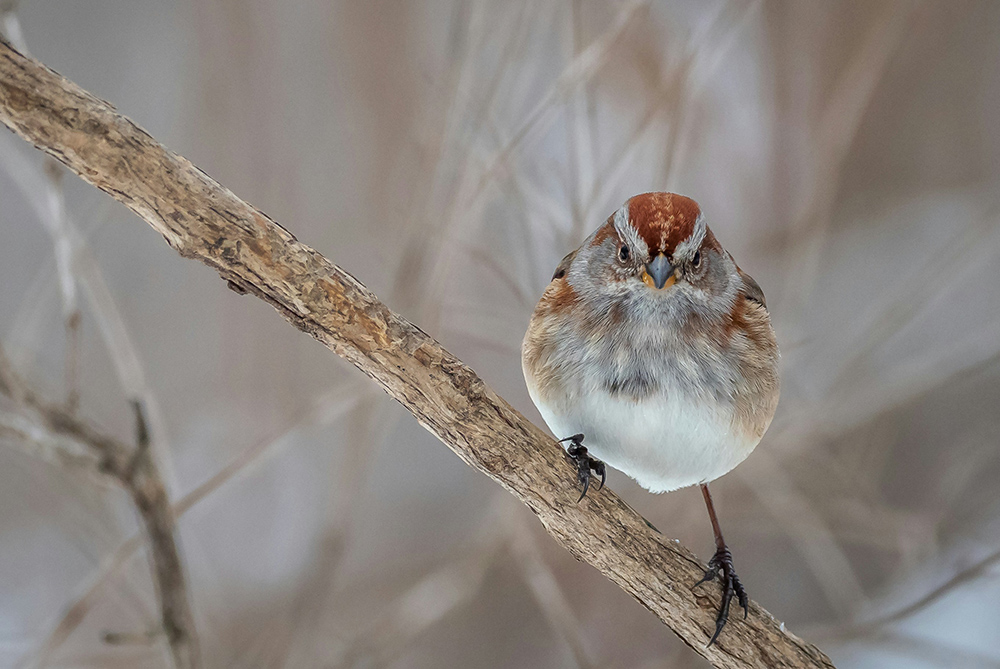
(Unsplash/Ralph Katieb)
Over the last decade, the emerald ash borer has devastated communities across the United States. Fighting back against the scrouge, our community has taken down countless infected ash trees and this has impacted our native bird population.
My husband decided that in retirement he would help protect and feed the homeless birds. This has meant an increase in our bird feeding stations as we attempt to feed every migrating bird that comes our way, while also keeping the natives fed. We especially enjoy welcoming the hummingbirds in spring as they migrate north. All summer we work to not only attract but nurture the nesting and birthing process of the little darting demon-beauties. When they leave us in October it is always bittersweet; we hate to see them go, but are exhausted by their needs.
Last winter, in a streak of bitter cold, we began our life below zero. Two heavy, wet snows turned several evergreen shrubs into two-dip vanilla ice cream cones. The shrubs stood just below my writing room window next to a quiet seed feeder. This is where I began an intimate view of a new condo housing at least 50 birds, all of them sparrows.
Advertisement
Who bothers paying attention to sparrows? My eye always goes to the colorful cardinals as they molt across the winter landscape. Goldfinches begin to throw off their dull feathers once the days start to lengthen. When this begins, I know spring isn't far behind.
Sitting one afternoon at my desk, I saw a most unusual thing: An ordinary brown sparrow hopped from a top branch to a lower one, and suddenly disappeared into the bush beneath the snow.
I stood up, pushing my face against the window. Where did it go? I strained to see further into the dark interior of an evergreen. That night, the temperature went to 20 degrees below zero and I lay in bed remembering the years I would take a broom to brush off the snowpack from my shrubs for fear if branches got too heavy, they might break. Thank God, this year I had forgotten those two shrubs.
Over the bitter winter days, we fed the sparrows, amazed at how social they were in cramped corners of the bush beneath the snow. Every morning, I watched them approach the feeder as a pair, one allowing the other to eat first, getting just enough so that the second could eat as well. There was no shoving or pushing, no fighting for space. Between the feeder and the shrubs, they understood they didn't need to exert too much energy or worry about finding food. Watching this, I remembered the verse in Matthew 10 where Jesus teaches, "Are not two sparrows sold for next to nothing? Yet not a single sparrow falls to the ground without your Father's consent."

(Unsplash/Patrice Bouchard)
As spring arrived, the snowpack began to melt and I decided to look more deeply into the life of my sparrows, feeling there was something about their visit important for me to understand beyond simple care. The temperatures were more conducive for other birds to be on the move now. I could see many heads inside the bush and was able to count them. One day they made a noise so loud I could hear it through the glass. They were chirping to one another, as if they had discovered they no longer needed to care where they lived.
Suddenly, up like a thick blanket, they grouped together and shot into the sky, moving toward a dark spot sitting on a branch several houses away. It was a hawk, newly arrived. As a group, the sparrows fearlessly circled it, two at a time diving towards it without any fear for their own lives. The hawk pushed off a bit, intimidated but not afraid, until the sparrows gathered a few more and attacked in a frenzy like a swarm of bees disturbed. They kept surrounding it on every side, as the hawk hopped to another tree, and then another tree, and on and on as they worked together until it finally took off for good.
The plain and plentiful sparrows so often overlooked, were not overlooked by Jesus.
And then I got it. I needed to look deeper into the natural environment surrounding me for nature's sweet rhyme.
In Matthew, Jesus says "Every hair of your head has been counted, so do not be afraid of anything. You are worth more than an entire flock of sparrows." The plain and plentiful sparrows so often overlooked, were not overlooked by Jesus. He looked at their lives deeply in the Sermon on the Mount saying, "Look at the birds in the sky? Can you not be so anxious? Look at how they must live!"
One day I noticed my condo shrubs were empty. My crew of fearless fighters had moved on and, in their place, my fearless fighting hummingbirds had returned searching for something to eat at the feeders.
What the poet Mary Oliver calls, "the wholesome sweetness of rhyme," I felt deep in my bones. With that hope, I look forward to this coming winter's visit from the sparrows who have opened my soul to the speechless poetry of life.




